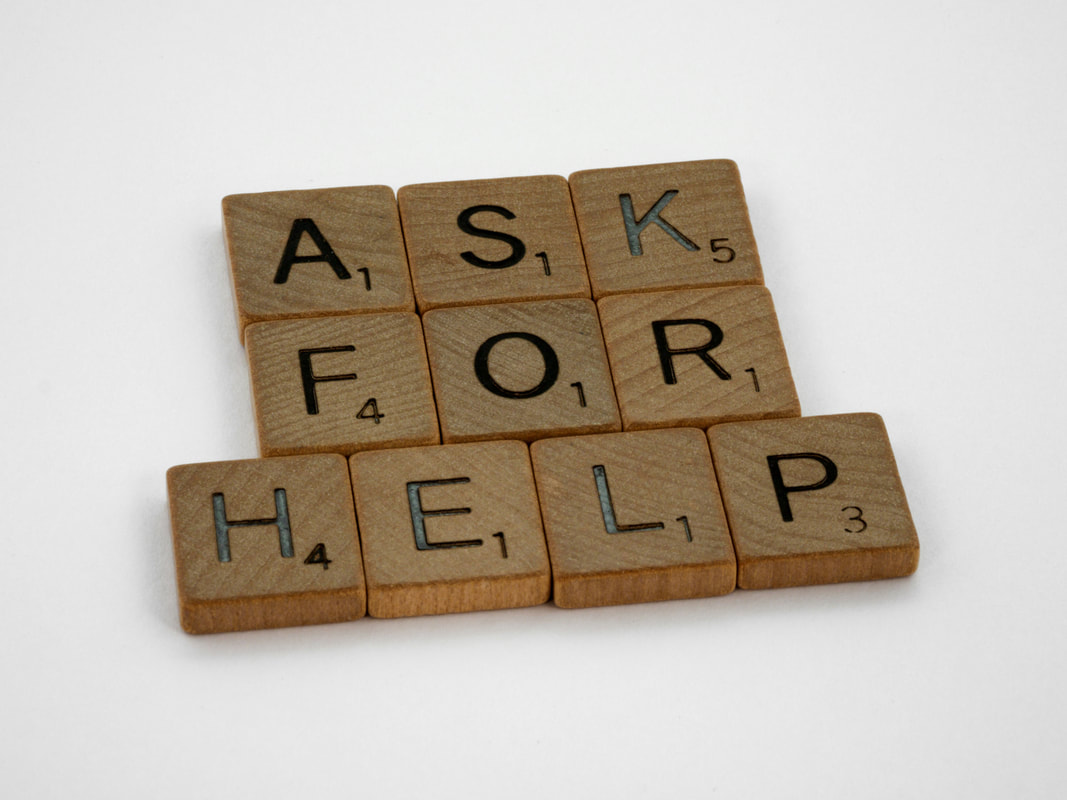|
In the constant balancing act of modern life, stress often becomes an unwelcome companion, especially for women. Women frequently face increased stress levels, coping with the physical and mental effects of stress on their well-being. The Gendered Stress Equation: Understanding the BurdenStriving for Balance in a Chaotic World I will shed some light on the unique stressors encountered by women in today's society. While many stressors overlap between genders, women often face the added weight of societal expectations surrounding familial and professional roles. Embracing the "Do-It-All" Myth Despite strides towards gender equality, women are still pressured to excel in multiple domains. From nurturing familial bonds to excelling in the workforce, women often find themselves shouldering the weight of myriad responsibilities. Unveiling Hidden Stressors: The Menstrual Conundrum Reproductive health issues further compound the stress landscape for women. The silent burden of menstrual cycles, which, though frequently overlooked, introduces additional layers of discomfort and emotional strain. Navigating the Landscape of Safety For women, the quest for safety transcends mere caution—it's a constant undercurrent shaping daily decisions. From navigating dimly lit parking lots to strategizing personal safety measures, the spectre of danger amplifies stress levels. The Toll of Stress: Unveiling the ConsequencesThe Anxiety Spiral: Unveiling Stress's Psychological Impact Stress doesn't merely manifest in fleeting worry; it permeates every facet of life, fueling anxiety and intrusive thoughts—the insidious nature of stress, which can culminate in sleep disturbances, headaches, and gastrointestinal issues. The Isolation Trap: The Pitfall of Social Withdrawal In the face of overwhelming demands, women often retreat into solitude, believing they lack the energy for social interaction. However, this self-imposed isolation exacerbates feelings of depression and anxiety, severing vital support networks. Embracing Healthy Coping MechanismsRethinking Perfection: The Power of "Good Enough" Central to stress management is relinquishing the pursuit of perfection. I suggest embracing imperfection, acknowledging that authenticity trumps flawlessness. By adopting a mindset of "good enough," women can alleviate the burden of unrealistic expectations. Prioritizing Self-Care: Nurturing Body and Mind Amidst life's chaos, self-care emerges as a non-negotiable priority. I have already written about five tips that can help manage stress and anxiety, but the transformative potential of exercise, sleep, and nourishment in mitigating stress is vital. Women reclaim agency over their mental and physical health by carving out time for personal well-being. Curating a Positive Environment: Mindful Consumption The digital landscape teems with triggers that exacerbate stress levels. Watch your consumption and limit exposure to distressing news and unrealistic social media depictions. By curating a positive online sphere, women safeguard their mental well-being. Seeking Professional SupportRecognizing the Signs: When to Seek Help Navigating stress alone is a daunting endeavour, and seeking women's therapy in Coquitlam when stress manifests can be extremely helpful. From dwindling interest in pleasurable activities to thoughts of self-harm, professional intervention offers a lifeline in tumultuous times. Initiating Conversations: Destigmatizing Mental Health
In destigmatizing mental health discussions, women pave the path toward healing and resilience. In the labyrinth of stress, women wield resilience as their guiding light. Through self-compassion, community support, and professional intervention, women embark on a journey towards holistic well-being. Together, let us navigate the terrain of stress, emerging more robust and empowered. Contact me to book a session.
0 Comments
Trauma is a heavy burden, one that weighs not only on the mind but also on the soul. Yet, there is a powerful tool known as EMDR therapy to help individuals in Coquitlam navigate through the shadows of their past. Whether it be the aftermath of a car accident, the haunting echoes of violence, or the relentless grip of a natural disaster, trauma has a profound way of reshaping our perception of control. Understanding Trauma: Beyond the ObviousTrauma isn't always born from cataclysmic events; it often lurks in the shadows of seemingly mundane experiences. Dubbed as 'small t' trauma, these incidents, such as divorce, financial turmoil, or persistent conflicts, can shatter our emotional resilience, surpassing our capacity to cope. Unveiling EMDR Therapy: A Beacon of HopeEMDR, an acronym for Eye Movement Desensitization and Reprocessing, stands as a beacon of hope amid the tumult of trauma. Endorsed by stalwarts like the American Psychiatric Association, the World Health Organization, and the United States Department of Veteran Affairs, Coquitlam EMDR therapy offers a ray of healing light. Liberating From Trauma's Shackles: The Efficacy of EMDR TherapyEMDR Therapy acts swiftly, alleviating the debilitating symptoms tethered to trauma's grasp. From harrowing flashbacks and haunting nightmares to pervasive numbness and volatile outbursts, EMDR offers a pathway to reclaim one's sense of self. Navigating the Path: Preparing for EMDR Therapy in CoquitlamCrafting Your Blueprint: The Treatment Plan Embarking on the journey of EMDR therapy in Coquitlam entails navigating through eight distinct phases. In the first session, we will go on a voyage through your personal history, unravelling the tapestry of past traumas and emotional responses. Embracing the Experience: The EMDR Therapy Session Before an EMDR session, I will equip you with coping mechanisms. These tools, which range from visualization techniques to stress alleviation strategies, serve as your armor against distressing memories. Embracing Healing: Unraveling Traumatic Memories As the session unfolds, I will guide you through traumatic memories, which will be difficult but needed in your healing. Through bilateral stimulation, be it following my gentle gaze or embracing tactile sensations, you embark on a transformation. Embarking on the Road to Recovery With each session, trauma begin to loosen their grip. As negative images and false beliefs dissipate, you emerge from the shadows, adorned with newfound resilience and optimism. Embracing the Journey: Your Path to Freedom
EMDR therapy is more than just a treatment; it's a journey of self-discovery and healing. With my support, your path to liberation from past trauma begins here. Take the first step today and embark on a transformative voyage towards inner peace and wholeness. Contact me to start your EMDR therapy, and let the healing begin. Struggling to say “no” or feeling like a people-pleaser? You’re not alone. Setting boundaries is crucial for maintaining your mental health, but it’s not always easy, especially when you feel selfish or unsure about how to communicate. At Good Talk Therapy, I help people like you learn to advocate for their needs and set clear boundaries. By the end of this read, you’ll know what boundaries are, why they matter, and five practical ways to set strong boundaries. What is a Boundary?A boundary is a personal limit based on your emotional, social, or physical needs. You might set boundaries with others or even with yourself. For instance, you might enjoy hanging out with friends after work but must be home by 9pm to get enough sleep for an early shift. This boundary helps you prioritize your well-being. Boundaries clarify what you need in relationships, foster healthy interactions, and let others know what’s acceptable. Why Are Boundaries Important?Boundaries are vital because they dictate how you want to be treated and the kind of life you want to lead. They’re crucial in all areas of life—friendships, romantic relationships, and work. When you set boundaries, you:
5 Ways to Set Strong BoundariesHere are five steps to help you set stronger boundaries: 1. Understand Your Needs You can’t set effective boundaries without knowing what you need. Reflect on what’s bothering you in different areas of your life. Is your boss ignoring your work hours? Does a friend expect you to spend a lot every time you go out? Identify what’s stressing you out and how it affects your well-being. Write down what you need from these relationships to get a clear picture of the boundaries you need to set. 2. Communicate Your Boundaries Communicating boundaries can be challenging, but these tips can help:
3. Enforce with Physical Boundaries Physical boundaries can help reinforce the limits you’ve set. For example, leaving your phone in another room can prevent you from answering work messages after hours. 4. Prioritize Self-Care Setting boundaries can be overwhelming, especially if you worry about how others react. Make self-care a priority during this process. Take care of your physical, mental, and emotional health to stay strong. 5. Connect with a Professional If you’re struggling to set boundaries, a therapist in Coquitlam can help. They can assist you in:
Next Steps for Setting Stronger BoundariesNow that you know why boundaries are important and how to set them, you can start advocating for what you need. At Good Talk Therapy, we help you feel confident and secure in setting your boundaries.
If you’re ready to take the next step, contact us or book a free 15-minute consultation. Recent investigations have revealed a significant increase in global instances of both depression and anxiety, rising by 25% within the first year of the COVID-19 pandemic. This trend, along with a growing societal acceptance of mental health conditions, has sparked an expanding conversation about anxiety and depression. While these terms are often used interchangeably, understanding their differences is crucial, especially for those struggling with mental health. Knowing these distinctions helps individuals better interpret their symptoms, manage their circumstances, and choose the best ways to cope with their challenges. Only a medical or mental health professional can provide a formal diagnosis, but seeking information is entirely encouraged. In fact, understanding the intricacies of one’s condition is the first step toward recovery. Here is a detailed explanation of the differences between anxiety and depression, along with an overview of the treatment options available. The Interplay of Anxiety and DepressionWhile anxiety and depression exhibit distinct differences, they share a common biological foundation. It is believed that reduced serotonin levels contribute to both conditions, along with other neurotransmitters such as epinephrine and dopamine. Despite this shared biological basis, anxiety and depression manifest in different ways. They can be seen as two sides of the same coin, capable of coexisting simultaneously or occurring sequentially. Deconstructing DepressionDepression involves a pervasive sense of hopelessness that significantly impacts one’s emotional state and behavior. To meet the diagnostic criteria, these symptoms must persist for most of the day, nearly every day, for at least two weeks. Individuals struggling with depression often feel a profound sense of futility, believing that positive outcomes are unlikely. They may also perceive themselves as worthless, seeing their efforts as meaningless. Suicidal thoughts can also occur in those affected by depression. Physically, depression can manifest as cognitive impairment, hindered concentration, and mnemonic lapses. It may also precipitate physical malaise, diminished appetite, and sleep disruption. Learn more about my Coquitlam depression therapy. Understanding AnxietyConversely, anxiety manifests as persistent trepidation and apprehension. When these feelings are unrelenting, they may indicate an anxiety disorder. Two predominant forms of anxiety disorders are generalized anxiety disorder, characterized by pervasive worry across various aspects of life, and social anxiety disorder, marked by fear in social situations. Additionally, panic disorder causes sudden, intense episodes of fear, often triggered by specific phobias. Anxious individuals are often besieged by apprehensions regarding forthcoming events, harboring uncontrollable premonitions of adversity or physical peril. They may adopt avoidance behaviors to circumvent anxiety-inducing circumstances. Physiologically, anxiety might manifest as dizziness, gastrointestinal disturbances, rapid heartbeat, muscle tension, and shortness of breath, all attributable to a perpetual state of heightened arousal. Delineating the DisparityWhile depression and anxiety share some symptomatic manifestations, their fundamental nature diverges markedly. Depression epitomizes an intense sentiment of despair and enervation, whereas anxiety manifests as pervasive apprehension and fear. Broadly construed, anxiety pertains to future-oriented worries and anticipated outcomes, while depression permeates the everyday, imbuing existence with a melancholic pallor. For instance, an individual might grapple with anxiety about vehicular travel after experiencing trauma from an accident or undergo pronounced distress in crowded settings due to underlying self-esteem issues. Conversely, depression shrouds the present moment in a pall of melancholy, rendering life devoid of vibrancy and allure. Therapeutic Modalities for Anxiety and DepressionThankfully, effective treatment modalities exist for both anxiety and depression. Mild symptoms may be alleviated through self-help interventions, including reading self-help literature and practicing mindfulness and meditation to ease fear and despondency. For individuals grappling with more pronounced manifestations, psychotherapy represents a viable recourse. Anxiety therapy in Coquitlam endeavours to address maladaptive thought patterns and behavioural adjustments. The therapeutic approach may diverge depending on the specific condition. Anxiety treatment aims to curtail avoidance behaviors and challenge irrational apprehensions, while depression therapy seeks to cultivate positive affectivity and foster adaptive behaviors during low mood episodes. Pharmacological interventions, such as selective serotonin reuptake inhibitors (SSRIs), also offer relief and have demonstrated efficacy in alleviating symptoms of both depression and anxiety. Often, medication is used in conjunction with psychotherapy to optimize therapeutic outcomes. In summary, while anxiety and depression might traverse disparate experiential terrains, their reconciliation necessitates a holistic approach encompassing psychotherapeutic intervention, pharmacological adjuncts, and self-help practices. By embracing this multifaceted therapeutic framework, individuals can navigate their mental health adversities with resilience and stability.
|
AuthorVictoria is a Registered Clinical Counsellor. She primarily works with families, youth and parents and women wanting to do self-work. Archives
May 2024
Categories |
GOOD TALK THERAPY
|
|
Good Talk Therapy acknowledges that it is located and operates on the traditional, ancestral, and unceded territories of the kʷikʷəƛ̓əm (Kwikwetlem First Nation), including those parts that were historically shared with the sq̓əc̓iy̓aɁɬtəməxʷ (Katzie), and other Coast Salish Peoples.
|
WESPACE
Unit 200-1140 Austin Ave Coquitlam, BC V3K 3P5 604.716.0631 [email protected] © 2024 Good Talk Therapy. All rights reserved. |





















 RSS Feed
RSS Feed

